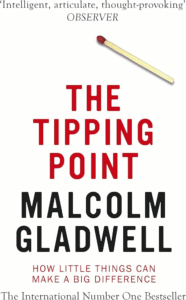The Echoes of Our Ancestors: The Significance of Preserving Endangered Languages
Languages are more than just tools for communication; they are the very fabric of culture, repositories of history, and windows into the unique ways different groups of people understand the world. When a language disappears, we lose not just words, but also a wealth of knowledge, traditions, and perspectives that can never be fully recovered. The preservation of endangered languages is therefore not merely an act of linguistic conservation, but a vital undertaking with profound implications for cultural diversity, historical understanding, and the future of humanity.

The Irreplaceable Loss of Cultural Heritage
The most immediate and apparent loss associated with language extinction is the erosion of cultural heritage. Languages carry within them the stories, myths, songs, and oral traditions that define a community’s identity. They encode unique ways of expressing emotions, understanding relationships, and interacting with the environment. When a language fades, these cultural treasures are often lost forever, leaving a void in the collective memory of humanity. For the communities that speak these languages, the loss can be particularly devastating, leading to a weakening of cultural identity and a sense of disconnection from their past. Preserving endangered languages is therefore crucial for maintaining cultural diversity and ensuring that future generations have access to the rich tapestry of human expression.
Unearthing History Through Linguistic Keys
Furthermore, endangered languages often hold invaluable historical information. Linguistic analysis can reveal connections between different cultures, trace migration patterns, and shed light on past events. Languages can preserve ancient knowledge about medicine, agriculture, and environmental management that may be lost in written records. Each language offers a unique perspective on human history, and its extinction diminishes our understanding of the past. By studying and preserving endangered languages, we can gain deeper insights into the human story and appreciate the diverse paths that have led to our present.
Insights into the Human Mind and Cognition
Beyond cultural and historical significance, the preservation of endangered languages also has implications for our understanding of the human mind. Each language represents a unique cognitive system, shaping how its speakers perceive and categorize the world. Studying diverse linguistic structures can provide valuable insights into the workings of the human brain and the relationship between language and thought. The loss of a language means the loss of a unique way of thinking and understanding, potentially limiting our ability to explore the full range of human cognitive potential.
The Complexities of Language Endangerment and the Efforts for Revitalization
The reasons for language endangerment are complex and multifaceted, often stemming from historical injustices, economic pressures, and globalization. Dominant languages often overshadow smaller ones, leading to language shift as individuals seek economic and social opportunities. However, there is a growing movement to revitalize and preserve endangered languages. This includes documentation efforts, language immersion programs, the creation of educational materials, and the use of technology to support language learning and transmission. These efforts are not only about preserving languages in a static form but also about empowering communities to reclaim their linguistic heritage and ensure its vitality for future generations.
In conclusion, the preservation of endangered languages is a matter of profound significance. It is a commitment to cultural diversity, a quest for a deeper understanding of human history, and an investment in the future of human knowledge. By recognizing the intrinsic value of each language and supporting efforts to revitalize and preserve them, we can honor the echoes of our ancestors and ensure that the rich tapestry of human expression continues to resonate for generations to come.










